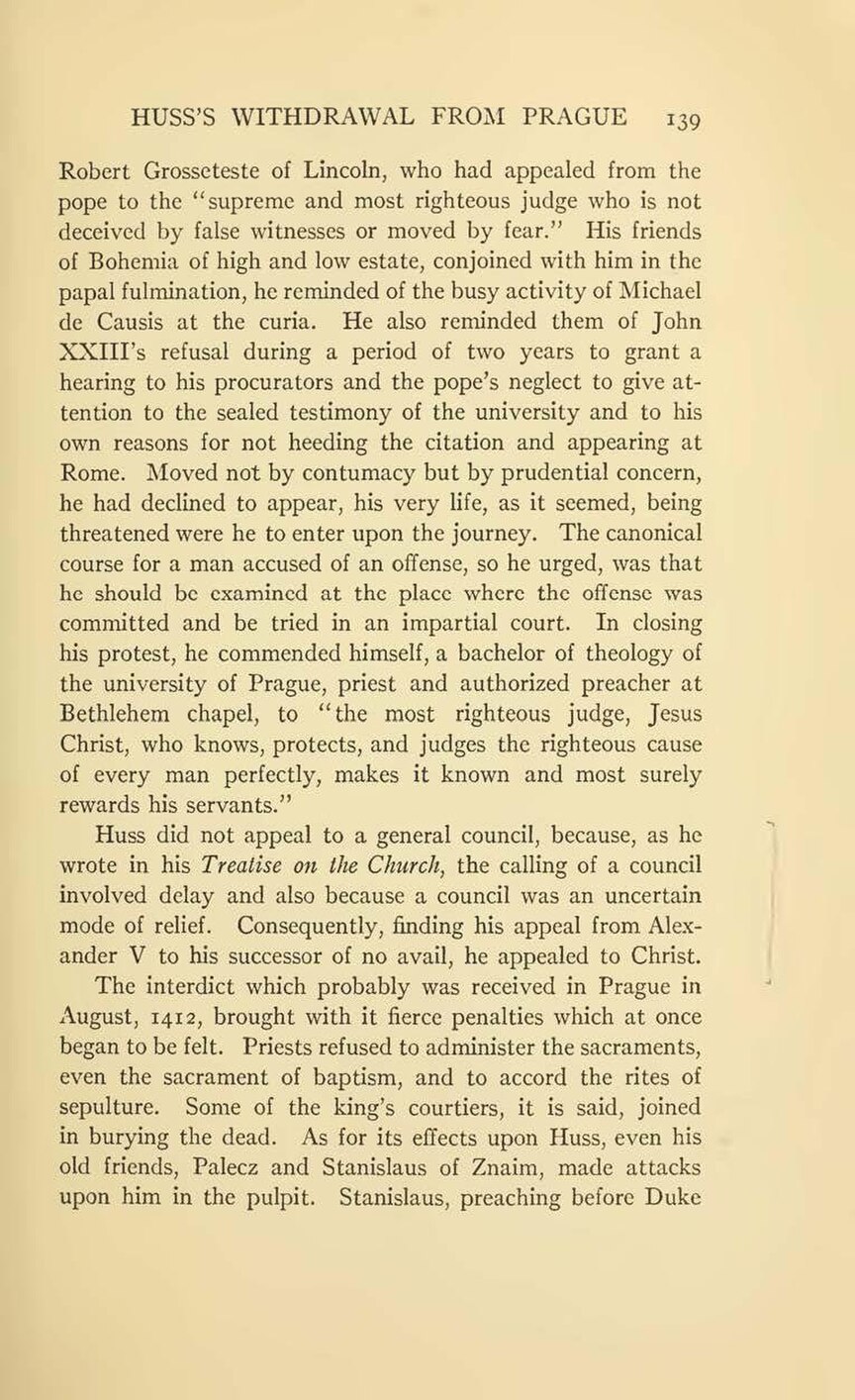Robert Grosseteste of Lincoln, who had appealed from the pope to the “supreme and most righteous judge who is not deceived by false witnesses or moved by fear.” His friends of Bohemia of high and low estate, conjoined with him in the papal fulmination, he reminded of the busy activity of Michael de Causis at the curia. He also reminded them of John XXIII’s refusal during a period of two years to grant a hearing to his procurators and the pope’s neglect to give attention to the sealed testimony of the university and to his own reasons for not heeding the citation and appearing at Rome. Moved not by contumacy but by prudential concern, he had declined to appear, his very life, as it seemed, being threatened were he to enter upon the journey. The canonical course for a man accused of an offense, so he urged, was that he should be examined at the place where the offense was committed and be tried in an impartial court. In closing his protest, he commended himself, a bachelor of theology of the university of Prague, priest and authorized preacher at Bethlehem chapel, to “the most righteous judge, Jesus Christ, who knows, protects, and judges the righteous cause of every man perfectly, makes it known and most surely rewards his servants.”
Huss did not appeal to a general council, because, as he wrote in his Treatise on the Church, the calling of a council involved delay and also because a council was an uncertain mode of relief. Consequently, finding his appeal from Alexander V to his successor of no avail, he appealed to Christ. The interdict which probably was received in Prague in August, 1412, brought with it fierce penalties which at once began to be felt. Priests refused to administer the sacraments, even the sacrament of baptism, and to accord the rites of sepulture. Some of the king’s courtiers, it is said, joined in burying the dead. As for its effects upon Huss, even his old friends, Palecz and Stanislaus of Znaim, made attacks upon him in the pulpit. Stanislaus, preaching before Duke
